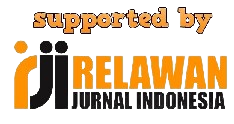Prediction of Infant Mortality Using The Decision Tree and Genetic Algorithm Methods
DOI:
https://doi.org/10.31294/p.v25i1.1819Keywords:
Decision Tree, Infant Mortality, Genetic AlgorithmAbstract
One of the things that plays a role in reducing infant mortality is the government. Based on infant mortality data in Jakarta in 2018 that has been previously tested with the decision tree algorithm, the update in this study is to use the genetic algorithm. The purpose of the update is to increase the accuracy of the results to be maximized. From the test results with the DT algorithm optimized by GA, the maximum accuracy value is 100%, and each attribute has a weight value of 1 where the value is the maximum value. After obtaining maximum results, the data will be used to reduce infant mortality, especially in Jakarta
References
Abirami, E., & Karthika, S. (2018). Design of infant monitoring system to reduce the risk of sudden infant death syndrome. Proceedings of the 2017 IEEE International Conference on Communication and Signal Processing, ICCSP 2017, 2018-Janua, 180–183. https://doi.org/10.1109/ICCSP.2017.8286802
Elhariri, E., El-Bendary, N., & Taie, S. A. (2020). Using Hybrid Filter-Wrapper Feature Selection with Multi-Objective Improved-Salp Optimization for Crack Severity Recognition. IEEE Access, 8, 84290–84315. https://doi.org/10.1109/ACCESS.2020.2991968
Hammami, M., Bechikh, S., Hung, C. C., & Ben Said, L. (2019). A Multi-objective hybrid filter-wrapper evolutionary approach for feature selection. Memetic Computing, 11(2), 193–208. https://doi.org/10.1007/s12293-018-0269-2
Kohno, A., Techasrivichien, T., Pilar Suguimoto, S., Dahlui, M., Nik Farid, N. D., & Nakayama, T. (2020). Investigation of the key factors that influence the girls to enter into child marriage: A meta-synthesis of qualitative evidence. PLoS ONE, 15(7 July), 1–20. https://doi.org/10.1371/journal.pone.0235959
Mariati, U., Agus, Z., Sulin, D., Masrul, M., Amri, Z., Arasy, F., Muslim, M., Hanum, H., Mohanis, M., & Arma, F. (2011). Studi Kematian Ibu dan Kematian Bayi di Provinsi Sumatera Barat: Faktor Determinan dan Masalahnya. Kesmas: National Public Health Journal, 5(6), 243. https://doi.org/10.21109/kesmas.v5i6.119
Priyatama, I. M. D., & Satya, B. (2022). Klasifikasi Anak Berkebutuhan Khusus Tunagrahita. 24(1).
Purnama, J. J., Nawawi, H. M., Rosyida, S., Ridwansyah, & Risandar. (2020). Klasifikasi Mahasiswa Her Berbasis Algortima Svm Dan Decision Classification of Her Students Based on Svm Algorithm and. Jurnal Teknologi Informasi Dan Ilmu Komputer, 7(6), 1253–1260. https://doi.org/10.25126/jtiik.202073080
Ridwansyah, R., Riyanto, V., Hamid, A., Rahayu, S., & Purnama, J. J. (2022). Grouping Data in Predicting Infant Mortality Using K-Means and Decision Tree. Paradigma - Jurnal Komputer Dan Informatika, 24(2), 168–174. https://doi.org/10.31294/paradigma.v24i2.1399
Ridwansyah, R., Wijaya, G., & Purnama, J. J. (2020). Hybrid Optimization Method Based on Genetic Algorithm for Graduates Students. Jurnal Pilar Nusa Mandiri, 16(1), 53–58. https://doi.org/10.33480/pilar.v16i1.1180
Riyanto, V., Hamid, A., & Ridwansyah. (2019). Prediction of Student Graduation Time Using the Best Algorithm. Indonesian Journal of Artificial Intelligence and Data Mining, 2(2), 1–9. https://doi.org/http://dx.doi.org/10.24014/ijaidm.v2i1.6424
Salina, F. H., Almeida, I. A. de, & Bittencourt, F. R. (2019). Renewable Energy and Sustainable Buildings.
Setyo, D., Dan, R., Puspitasari, N., Biostatistika, D., Fakultas, K., Masyarakat, K., Airlangga, U., Mulyorejo Kampus, J., Surabaya, U., Korespondensi, A., Dwi, :, & Rini, S. (2014). Hubungan Status Kesehatan Neonatal Dengan Kematian Bayi. 60115.
Downloads
Published
How to Cite
Issue
Section
License
Copyright (c) 2023 Suhardjono, Adjat Sudradjat, Bilal Abdul Wahid, Hari Sugiarto, Hafis Nurdin

This work is licensed under a Creative Commons Attribution-ShareAlike 4.0 International License.
Paradigma is an open-access article distributed under the terms of the Creative Commons Attribution-ShareAlike 4.0 International License (https://creativecommons.org/licenses/by-sa/4.0/) , This license permits: Share — copy and redistribute the material in any medium or format for any purpose, even commercially, Adapt — remix, transform, and build upon the material for any purpose, even commercially.




















 Jl. Kramat Raya No.98, Kwitang, Kec. Senen, Kota Jakarta Pusat, DKI Jakarta 10450
Jl. Kramat Raya No.98, Kwitang, Kec. Senen, Kota Jakarta Pusat, DKI Jakarta 10450
